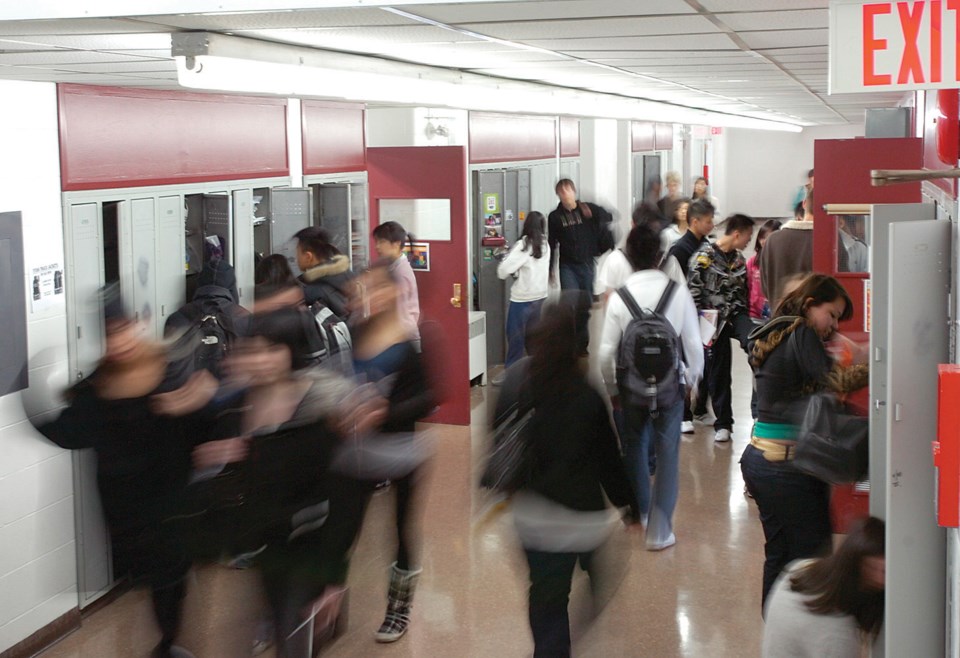Vancouver school district superintendent Steve Cardwell says the Vancouver School Board’s human resources department is preparing to deal with potential job action should negotiations restarting Sept. 4 between support workers and the government break down.
“We’re hopeful that there will be a settlement across the table,” Cardwell told the Courier in a telephone interview squeezed in between meetings at lunchtime Aug. 29.
Looking to the school year ahead, which began with students returning to classes this week, he said the board will focus on improving the success of aboriginal students and expanding aboriginal cultural awareness throughout the school district.
The board asked schools to make improving aboriginal cultural awareness one of their key goals and schools are expected to hold related events for students, staff and parents.
Students and staff will participate in reconciliation events Sept. 22, and the board hopes to see a special event on a professional development day in February that would feature aboriginal leaders as keynote speakers.
The aboriginal focus school will continue at Macdonald elementary. Don Fiddler, district principal of aboriginal education, will work with all schools.
All of the district’s secondary schools and three-quarter of its elementary schools now have Wifi. Teachers have noted many students are bringing their own smartphones, tablet computers and laptops to class and the board wants students to have equitable access to technology.
With that in mind, it provides at least 50 mobile carts that include 15 iPads, 20 carts with 15 to 30 laptops, and one cart with 30 iPod touches to be shared among schools and classrooms.
To ensure these tools are being used wisely, the board tabled a policy on acceptable use of technology and social media last year.
At the elementary level, the board is expanding its early learning and intervention program to more schools so students in kindergarten and Grade 1 who struggle with literacy will receive one-on-one help to improve their skills. Cardwell believes this will now happen at 39 schools.
At the secondary level, Cardwell said the school board wants to encourage “as many students as possible” to consider careers in trades and apprenticeships.
“We know the province is projecting a huge shortage of skilled workers in the future,” he said, “and so knowing for myself how challenging it is to find a plumber or an electrician, I think it’s the right sort of direction to go in.”
The district will try to move more students to work experience and post-secondary institutions. It’s working with the B.C. Institute of Technology, or BCIT, to provide opportunities for students to complete secondary and post-secondary courses concurrently, and the board has partnered with Vancouver Community College, which is newly offering five first-year scholarships for aboriginal students
Cardwell noted skilled jobs include technicians, paraprofessionals, chefs and hairdressers.
In addition to offering more access to education and careers, the board is continuing to provide more opportunities for students to have a say in education with more student forums and a year-long trial of a student trustee at board and committee meetings.
Cardwell says the board needs to take a closer look at the Ministry of Education’s B.C. Education Plan and to discuss it with teachers and support staff.
“We don’t want to lose our focus on core subjects such as science and math and English and social studies,” he said. “Let’s not let the pendulum swing too far.”
Cardwell supports problem-based and integrated approaches to learning.
“The real world isn’t an hour of science and an hour of math and an hour of English, it’s much more integrated and we want to provide those opportunities,” he said.



